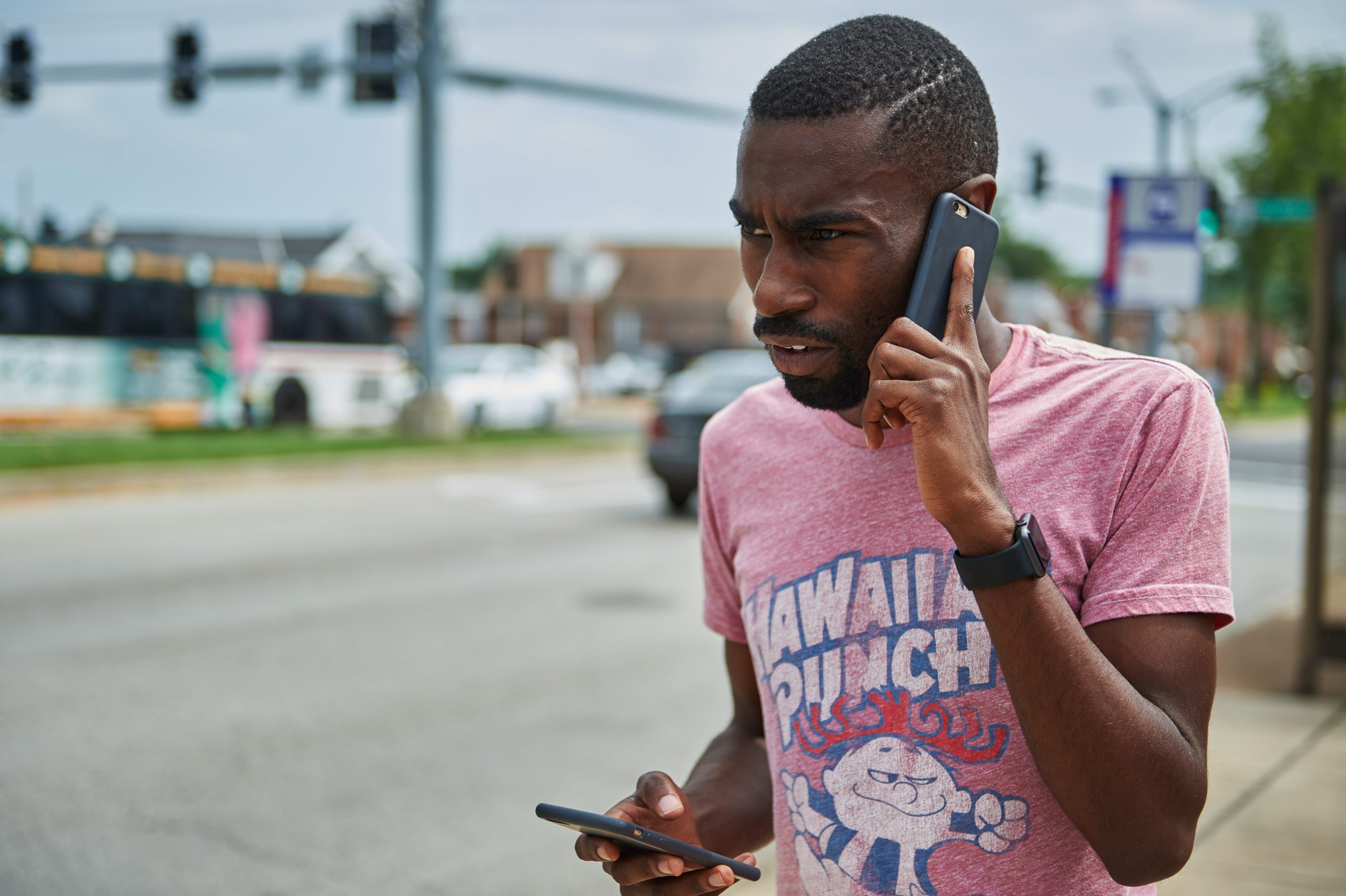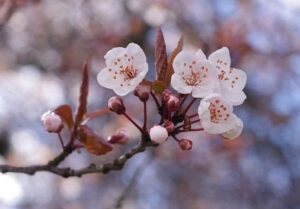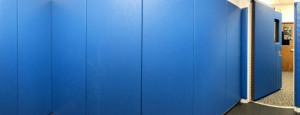For more than a week, streets in major cities and suburban communities have been packed with people protesting police brutality in the wake of the killing of George Floyd and other unarmed black people at the hands of law enforcement.
Videos on social media show the countless violent clashes between protesters and police, many provoked by instigators on both sides.
Separate from the protests, looters are ransacking stores as they take advantage of the situation and wreak havoc on small businesses. All the while, the U.S. continues to cope with a deadly coronavirus outbreak that disproportionately affects African-Americans.
As of Thursday afternoon, there are more than 1.8 million cases of COVID-19 in the U.S. and more than 107,000 deaths, according to Johns Hopkins’s latest count. And this is all happening as the country prepares for a presidential election that could be decided by black voters.
It’s a lot for many people to grapple with and make sense of, but in a one-on-one interview with Yahoo News, DeRay Mckesson — one of the nation’s most prominent and recognizable civil rights activists — says it’s important to focus on the crisis at hand and work from there.
“This immediate crisis is around police violence and acknowledgment that the police kill around 1,100 people each year,” Mckesson, 34, said.
Mckesson has been an integral part of national protests against police brutality since 2014. That’s the year Mike Brown, an 18-year-old unarmed black man, was shot and killed by a white police officer. The event spurred Mckesson’s commitment to combating police brutality, although he acknowledges that there’s still much work to be done.
“The police have killed more people since the protests in 2014, not less. And then a third of all the people killed by strangers are actually killed by a police officer. So that’s the way we enter into this conversation.”
In a video interview with Yahoo News, Mckesson talked about trusting your gut when it comes to protesting and why giving any attention to President Trump is playing right into what he wants. The interview has been edited for clarity.
Marquise Francis: We’re dealing with the coronavirus pandemic, black people feel as though we’re being hunted by police and then we have a presidential election coming up this year. How do you wrap your mind around what’s going on and what the focus needs to be?
DeRay Mckesson: We think this immediate crisis is around police violence, right? And acknowledgment that the police kill around 1,100 people each year, but the police have killed more people since the protests in 2014, not less. And then a third of all the people killed by strangers are actually killed by a police officer.
So that’s the way we enter into this conversation. And that is a key part of why the protests are in the streets again. So that’s one of the biggest things that I think about, because we think about the pantheon of issues in this civil rights space that have been addressed — the police is one of the only issues that hasn’t really changed.
Then with the backdrop of the presidential election coming up, most black people are not fans of President Trump. But then a lot of people also aren’t feeling former Vice President Joe Biden. So is Joe Biden doing enough for black Americans?
I think that’s like a false-choice question. I think Trump is so egregious that it’s, like, we might want something better from Biden, but Trump is just so wild.
We never thought there’d be a president who would ban whole countries on Twitter. We never thought there’d be a president who would seek the death penalty for drug dealers, right? Are you even thinking about him with the protest? What does it look like? So I think that that is so wild and bad that there’s nothing Biden has done or could do that would make me think he wouldn’t be a fit president up against this guy.
Now, I think that Biden isn’t as progressive as we want him to be. I think there’s some pushes there. I also think that Biden’s platform is actually better than Biden’s ability to talk about that platform sometimes.
Are you surprised at this point by anything the president says? I know he tweeted the other day, “when the looting starts, the shooting starts,” and talked about sending in police in riot gear and these huge tanks. At this point, can it get any worse?
I think it can always get worse for Trump. Who thought he’d hide out in the bunker, and then who thought that he would have the police teargas peaceful protesters just so he could show that he could walk outside, right? It’s such arrogance, and it’s such ego.
I also think that the media is culpable in making Trump Trump. It’s wild that everything he does gets asked about incessantly, everything he does gets talked about it. We know he loves that. So the more and more we talk about him and the more and more we ask about it, that is what he wants: to always be the news. And he succeeds every time.
What we saw with George Floyd is what happened with Eric Garner. We saw someone literally killed by law enforcement on video. Why do you feel like this moment has captured not only the country but the world? And how do you feel you can channel this energy?
So you think about Minneapolis, where black people are 13 times more likely to be killed by the police than white people. It’s the highest racial disparity of any city in America with regard to police violence. So it makes sense in some ways this happened there, because the trauma is so real in Minneapolis around racism.
When we think about what do we make of this moment, it’s like in 2014, where we were promised a host of things that actually didn’t turn out to come to fruition. We were promised that mayors and local leaders and governors would have the courage to stand up to the police, and they didn’t. So when we think about quick solutions, it’s a use-of-force policy. So we know that there are eight policies that when they, when a police department goes from zero of them to all eight of them, there’s a 70 percent reduction in police violence.
And we think about them as simple, right? Banning chokeholds and strangleholds, requiring deescalation, requiring that an officer use all other means before using deadly force, requiring that they report every time they point their gun at somebody or threaten to point their gun at somebody. These are things that the data is really clear about — that when they are in place, they actually do matter and they lead to less violence from the police.
So that’s a part of it. And the second is, how do we shrink the role of the police? So we look at the data — only 5 percent of arrests that happen in the country happened for violent crime. We arrest more people for weed than all violent crimes combined. So it’s not a lot. It’s not what people think.
And the 5 percent of violent crime is literally an FBI number. It’s not like a homegrown number. Like, the FBI has reported 5 percent of arrests for violent crimes for the past 20 years or so. But we’ve staffed police departments as if we have 50 percent violent crime, 70 percent violent crime with arrests, and that’s just not true.
So part of the work is how do we say, “You know what? We don’t need somebody with a gun to respond to a mental health issue. We don’t need somebody with a gun to respond to a lost child or a car crash.” So what can we do to shift those resources somewhere else, shift the responsibility, some roles, and actually make this apparatus just much smaller than it needs to be?  70 PHOTOSAnti-racism protests across the U.S.SEE GALLERY
70 PHOTOSAnti-racism protests across the U.S.SEE GALLERY
A prominent question I’ve heard specifically from white people is, “Who is that one black leader who’s going to step up, or one black voice that’s going to help quell things?” And then from my perspective, a solid answer, I’ve also heard, “White people created this problem. White people need to fix it.” Do you share this sentiment as well?
I think that the beautiful thing is there are leaders at every level. There’s so many people doing incredible work. And part of what we can do to win is to all work together as we work toward a common goal.
I also think that part of what it means to be organized is that we don’t center ourselves in the work — we center the work in the work. So when I think about it, when we make all of our tools and all of our resource packets and all of our data analysis, we make all of it public.
We make it really easy to use, because you shouldn’t have to sign up for my mailing list. You shouldn’t have to know me. You shouldn’t have to like me to use the tools we create if we are all committed to the same outcome.
I think people lead in different ways, and we should encourage them. And we never want one leader, right? Because if you kill the leader, you kill the movement. And we don’t want to create a scenario where you kill the leader, you kill the movement.
We’re seeing a lot of young black, brown and white folks who are protesting. We’re seeing young white girls or white women put themselves in front of black bodies to help protect them. Being that you’ve been involved with so many protests, what would you want to say to young people to channel what they are doing and lead them in a productive way?
I don’t feel like I’m not, like, 50 years old, right? So it’s like when I was able to get comfortable, I feel like the young people will. For the younger people, what I would say to them is trust your gut. I think that what I wish people had told me in the stream was trust your gut. That you actually know much more than you think.
And if you think there’s a cavalry of people coming to save you, they are not coming. That when you think about most of the people you think are leading them, they are not willing to risk anything. I think about the number of people I sat on panels with, who had never been in any protests, and they are talking about the revolution. And it’s like, we’ve been in the streets for 400 days!
I got dragged out of a police department by my ankles. My phone has been hacked. The first person to ever be permanently banned from Twitter was banned for raising money to try and get me killed.
So when I think about these issues, I put something on the line, and a lot of young people who are waiting for other people to come and help organize them, it’s like, organize yourself. Nobody organized us in 2014. The protest spread organically in 2015. It’s a myth that people spread them intentionally. They spread organically, just like we saw them spread organically here.
So I’d say, trust yourself, ask for help when you need, push, keep the fight and let new ideas bubble. There were some high schoolers when we were on the street in 2014 who had some of the coolest ideas about where we should go, how we do it and where we should press. So we have to let people breathe in this space too.




